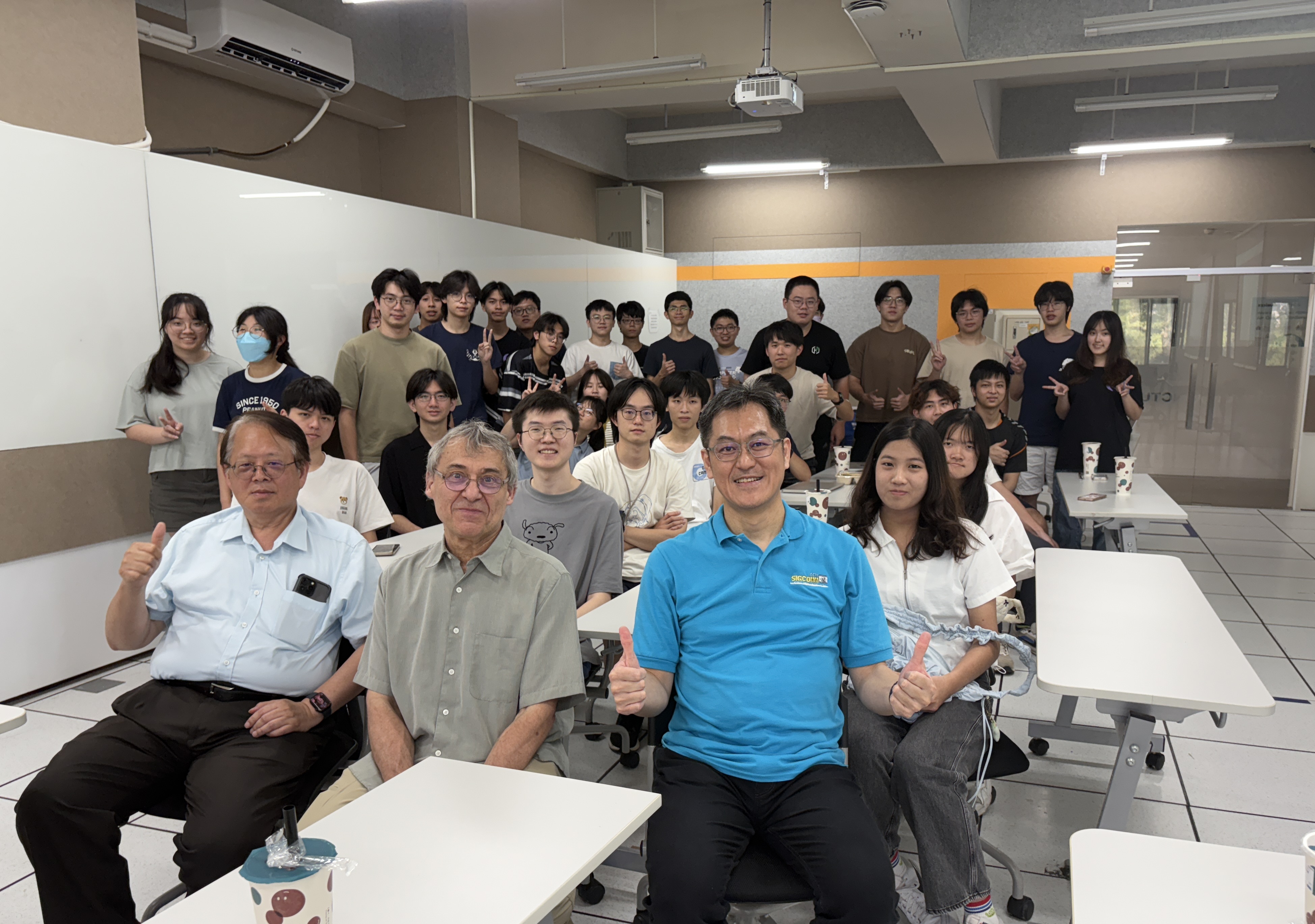Prof. Roch Guérin from Washington University in St. Louis, USA: A brief (machine learning) foray at the edge of computing
- Published on
- Author
- 張怡婷

On June 9, 2025, the College of Computer Science at National Yang Ming Chiao Tung University welcomed Dr. Roch Guérin from the Department of Computer Science and Engineering at Washington University in St. Louis for an academic exchange and invited lecture. Professor Roch Guérin is the Harold B. and Adelaide G. Welge Professor and Chair of Computer Science and Engineering at Washington University in Saint Louis, which he joined in 2013. He previously was the Alfred Fitler Moore Professor of Telecommunications Networks in the Electrical and System Engineering department of the University of Pennsylvania, which he joined in October 1998. Prior to joining Penn, he spent 12 years at the IBM T. J. Watson Research Center in a variety of technical and management positions. He started Ipsum Networks between 2001 and 2004, a company that pioneered the concept of route analytics for managing IP networks. Dr. Guerin received his Ph.D. from Caltech and did his undergraduate at ENST in France. He is an ACM and IEEE Fellow. He served as the Editor-in-Chief for the IEEE/ACM Transactions on Networking and as the Chair of ACM SIGCOMM. In 1994 he received an IBM Outstanding Innovation Award for his work on traffic management. He received the IEEE TCCC Outstanding Service Award in 2009 and was the recipient of the 2010 INFOCOM Achievement Award for “Pioneering Contributions to the Theory and Practice of QoS in Networks.”
Edge computing solutions have proliferated, fueled by a combination of increased network ubiquity, advances in computing, especially in embedded devices, and by the growing need to bring computations closer to where data is produced. Many of those scenarios are driven by machine learning applications. In this talk, Dr. Guerin discussed two projects, both motivated by edge computing machine learning applications, and for which machine learning was itself instrumental in devising an efficient solution.
- The first project, "Optimizing Edge Offloading Decisions for Object Detection," targeted object detection with local and edge compute resources cooperating to optimize detection accuracy under load constraint on the edge server. Under such a constraint, the goal is to devise a simple policy to decide which images to offload to the edge server while maximizing detection accuracy. This calls for a metric that quantifies improvements in overall detection accuracy from offloading an individual image, and an estimator for that metric that can run on embedded devices. The benefits of the approach are evaluated experimentally.
- The second project, "Progressive Neural Compression for Adaptive Image Offloading Under Timing Constraints," dealt with an object classification problem where a camera is uploading images to an edge server for classification. The wireless network used to upload successive images is, however, subject to bandwidth fluctuations. This requires an adaptive transmission strategy to maximize inference accuracy, irrespective of the amount of data that can be transmitted for each image. We realize this through a simple application of stochastic tail-drop when training a neural compression algorithm and demonstrate the efficacy of the approach on a local testbed.
Dr. Guerin concluded the talk with a brief reflection on his experience with machine learning as a (powerful) tool for solving complex optimization problems.